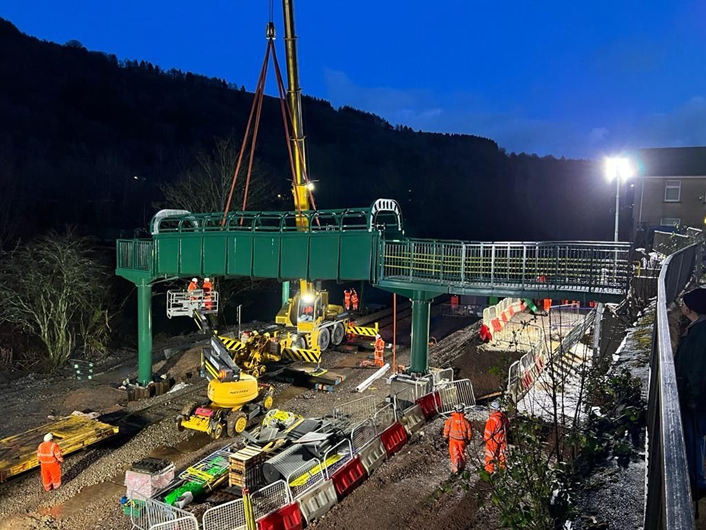13 Jan 2023
Transport for Wales has taken another leap forward in delivering the South Wales Metro by installing more than 6,500 metres of overhead electrification wires over the Christmas period.
The South Wales Metro will significantly improve connectivity throughout the region and teams worked around the clock, throughout the holiday period, to ensure major works were completed.
As well as installation of overhead electrification wires, teams also erected 250 metal masts, a new footbridge at Cwmcynon, two undertrack crossings at Cardiff Queen Street along with testing of a new signalling system.
The Taff Well’s depot that will be home to brand-new electric tram-trains in the coming years also received significant works and 195 sheet piles were installed at Aberdare to facilitate a new platform and track loop.
The Deputy Minister for Climate Change with responsibility for Transport, Lee Waters said: “A lot of the work on the South Wales Metro has been largely hidden from view until now, this year and next will see that change.
“The impressive work over Christmas is just the start of a series of steps that will become more and more visible as we work towards our aim of building a new Metro system by the end of 2024. This circa £1 Billion project is the largest and most complex engineering project taking place in Wales and will make a real difference to communities”
Karl Gilmore, Rail Infrastructure Director at TfW said: “Firstly, I’d like to thank all our teams and partners for the work they delivered over the Christmas period, they sacrificed their holidays so we could progress with delivering the South Wales Metro.
“I’d also like to thank all our lineside neighbours for their patience and understanding whilst we complete these upgrade works.
“We have reached another key milestone in our delivery of this project and we’re excited to continue moving forward into 2023.
“The South Wales Metro will transform the way people travel and provide a more sustainable option to taking the car, supporting the fight against climate change.”
The project has been part-funded by the European Regional Development Fund through Welsh Government.


